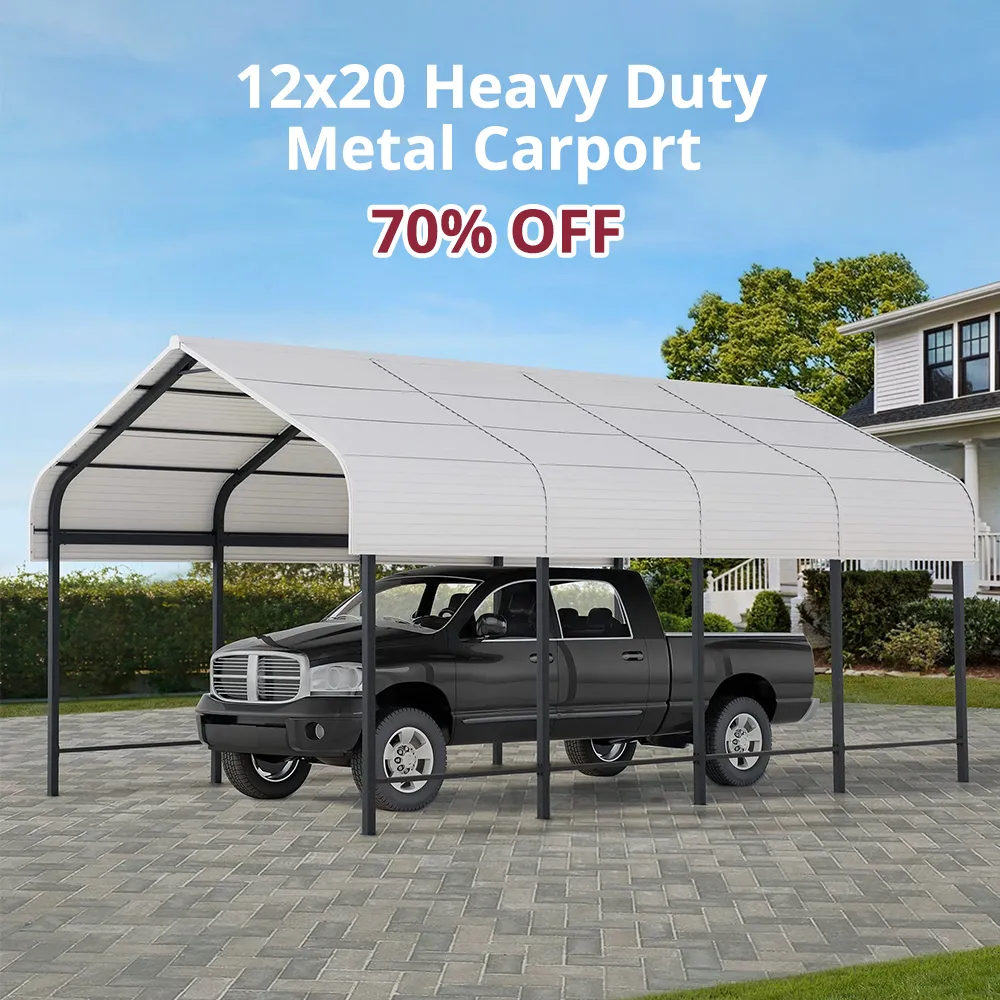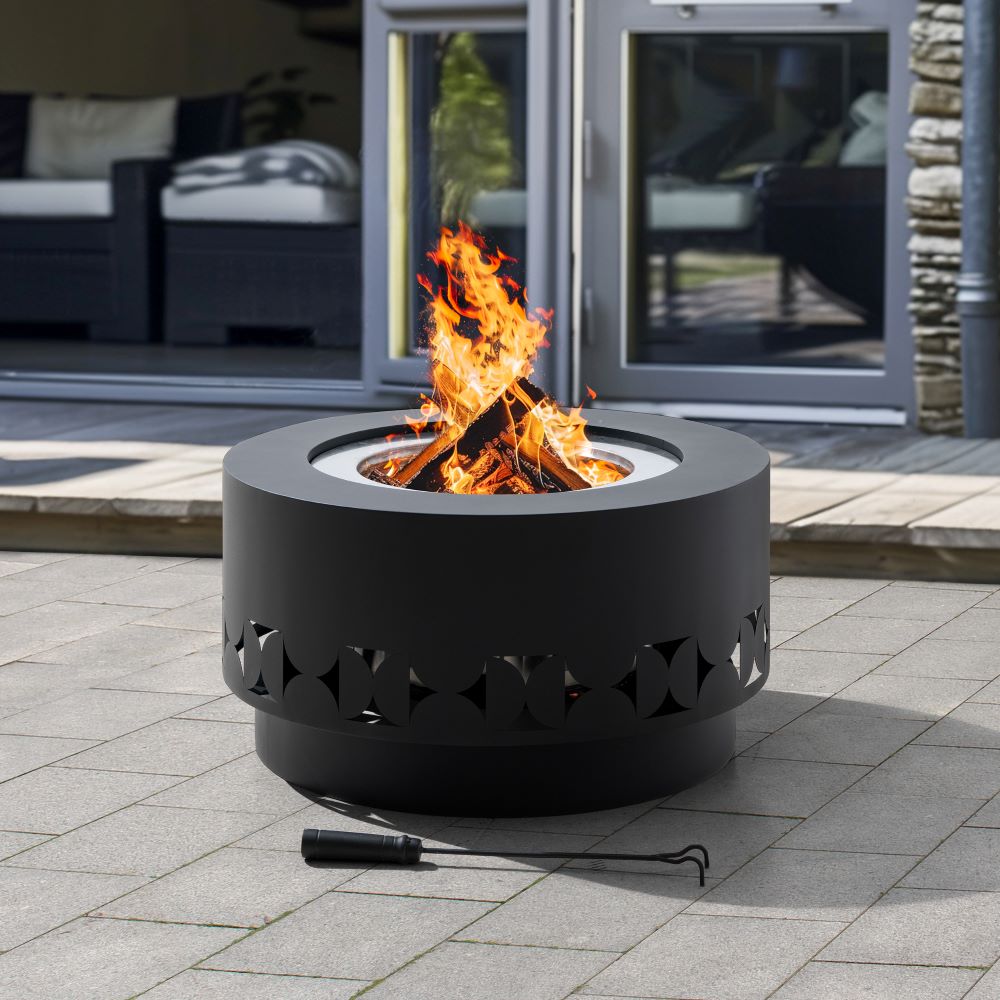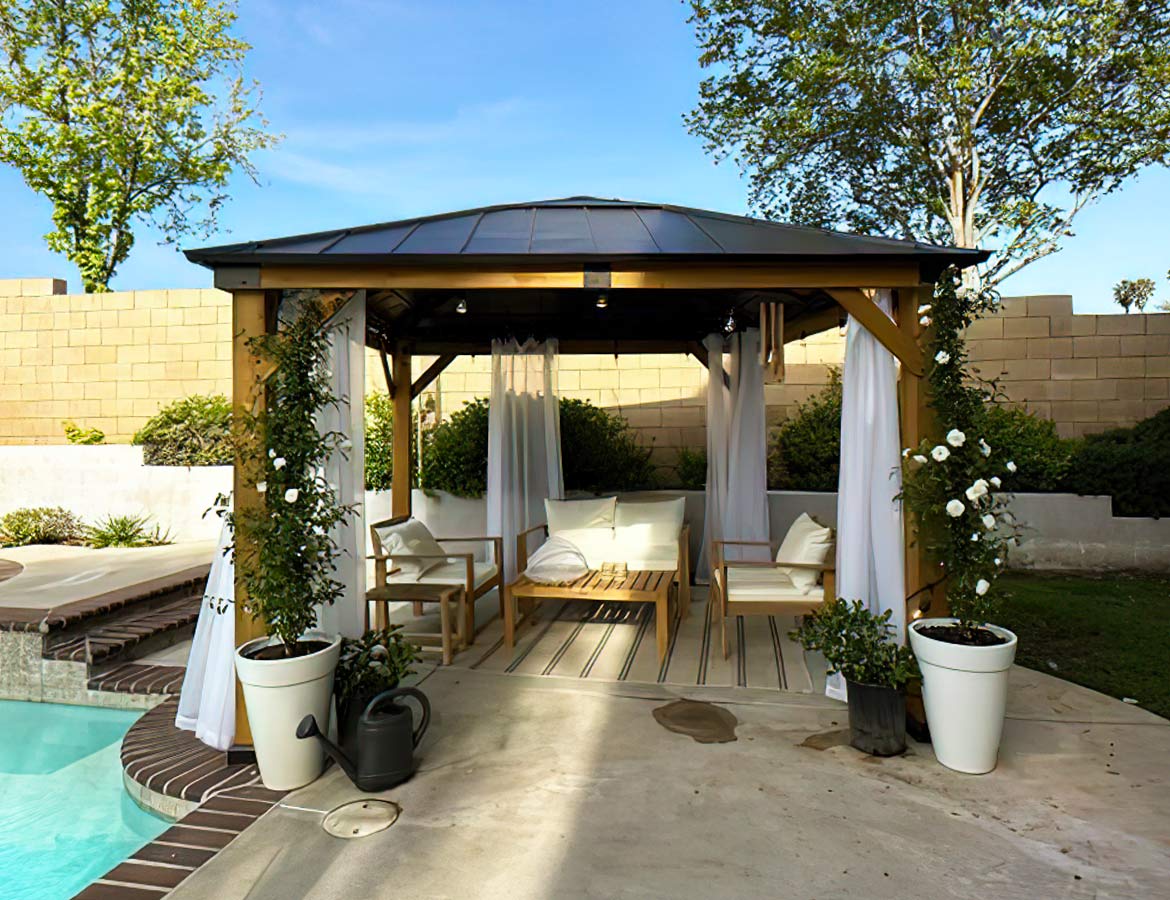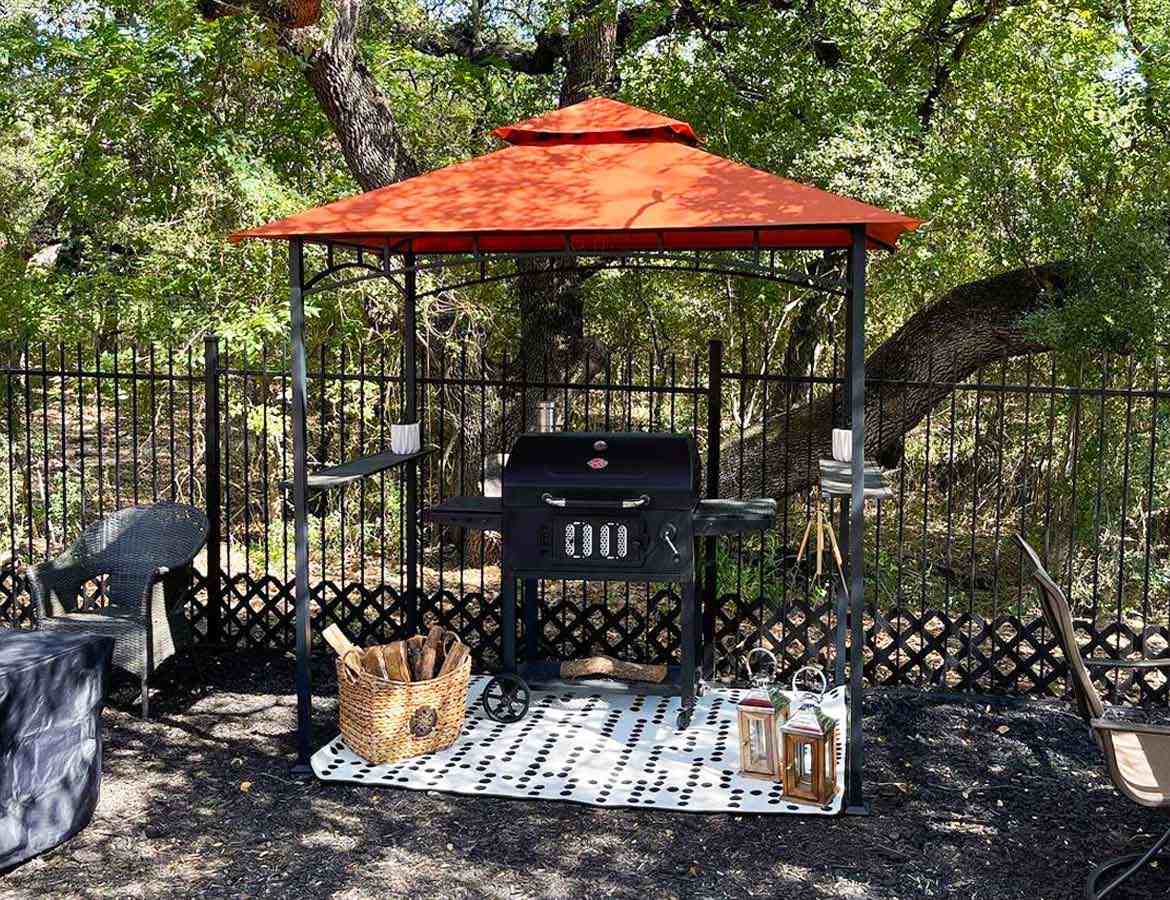When it comes to choosing a gazebo for your outdoor space, wind resistance is a crucial factor to consider. Whether you’re in an area with occasional gusts or frequent storms, a sturdy, wind resistant gazebo can provide peace of mind and long-lasting functionality.
From the reliable hardtop gazebo 12x12 to the charming wood gazebo with metal roof, there are plenty of options designed to handle windy conditions. In this guide, we’ll explore the key features of wind-resistant gazebos, anchoring techniques, and how to choose the best gazebo cover for windy areas.
Key Features of a Wind-Resistant Gazebo
To withstand wind, a gazebo must combine strength, stability, and design. Look for these essential features when choosing a gazebo:
1. Durable Roof Materials
A hardtop gazebo 12x12 with a metal or polycarbonate roof is excellent for resisting strong winds. These materials are heavier than fabric canopies, reducing the risk of the roof lifting during a storm.
Wood gazebos with metal roofs are another great option, combining the stability of wood with the resilience of a metal top.
2. Sturdy Frame Construction
Gazebos made from powder-coated steel, aluminum, or treated wood are designed to handle tough weather conditions.
Ensure the frame is reinforced with crossbars or additional support beams for added stability.
3. Anchoring Points
Built-in anchor points or pre-drilled holes are essential for securing your gazebo. These allow for easy attachment to concrete, decking, or the ground using gazebo anchors.
4. Proper Ventilation
A vented roof design allows wind to pass through the gazebo, reducing the risk of lifting or structural damage during strong gusts.
5. Size and Weight
Larger gazebos, such as a hardtop gazebo 12x12, tend to be more wind-resistant due to their weight and stable base.
Top Gazebo Options for Windy Areas
Here are some of the best gazebo designs that can withstand wind:
1. Hardtop Gazebo 12x12
Why It’s Great: The 12x12 size provides ample space for outdoor gatherings while offering excellent wind resistance. Its hardtop roof made from galvanized steel or polycarbonate adds durability.
Features:
Rust-resistant frame for long-term use.
Vented roof design to minimize wind impact.
Sturdy construction with built-in anchor points.
2. Wood Gazebo with Metal Roof
Why It’s Great: A wood gazebo with metal roof combines natural aesthetics with superior wind resistance. The wood frame provides a stable foundation, while the metal roof is designed to withstand tough weather.
Features:
Pressure-treated wood for rot and insect resistance.
Heavy-duty metal roof panels for durability.
Reinforced joints for added stability.
3. Wind Resistant Gazebo with Canopy
Why It’s Great: For those who prefer a lighter design, some canopy gazebos are built with wind-resistant fabrics and frames. These often include extra support features and secure anchoring systems.
Features:
Windproof canopy fabric treated to resist tearing.
Lightweight aluminum frame with crossbars for support.
4. Gazebo Cover for Windy Areas
Why It’s Great: A gazebo cover for windy areas enhances protection by securing the roof or canopy against harsh conditions. Covers made from heavy-duty materials prevent wind from catching under the roof.
How to Anchor Your Gazebo for Wind Resistance
Proper anchoring is crucial for ensuring your gazebo stays in place during high winds. Here’s how to do it:
1. Use Gazebo Anchors
Concrete Anchors: Drill holes into concrete surfaces and attach the gazebo using expansion bolts.
Ground Stakes: For grass or soil, use heavy-duty stakes driven deep into the ground. Auger-style stakes offer added security.
2. Add Weight to the Base
Use weighted sandbags, concrete blocks, or specially designed gazebo weights to stabilize the structure. This is especially useful for temporary setups.
3. Secure the Roof
If using a gazebo cover for windy areas, ensure it’s tightly secured to prevent wind from catching underneath.
4. Inspect Regularly
Periodically check that all anchors and bolts are secure, especially after storms or windy days.
Tips for Enhancing Wind Resistance
Even the best-designed gazebo can benefit from additional windproofing. Here are a few extra tips:
Choose a Sheltered Location: Place your gazebo near a wall, fence, or row of trees to shield it from direct wind exposure.Install Windbreaks: Use screens, curtains, or hedges around your gazebo to reduce wind impact.
Reinforce the Frame: Add brackets or braces to the frame for extra support.
Use Heavy Furniture: Placing heavy furniture inside the gazebo adds weight and stability, reducing the risk of movement during windy conditions.

Why Invest in a Wind-Resistant Gazebo?
A wind resistant gazebo is not just about surviving storms—it’s about long-term durability and safety. Whether you’re looking to install a hardtop gazebo 12x12 for all-season use or a wood gazebo with metal roof for a rustic touch, a wind-resistant design ensures your investment pays off in the long run.
Additionally, securing your gazebo with proper gazebo anchors and choosing a gazebo cover for windy areas protects both the structure and the people using it, giving you peace of mind.
Conclusion
When selecting a gazebo that can withstand wind, focus on durable materials, sturdy construction, and proper anchoring. Options like the hardtop gazebo 12x12, wood gazebo with metal roof, or specialized wind resistant gazebos provide excellent protection while enhancing your outdoor space.
With the right gazebo and windproofing techniques, you can create a stylish and functional outdoor retreat that stands up to the elements year-round.






Leave a comment
All comments are moderated before being published.
This site is protected by hCaptcha and the hCaptcha Privacy Policy and Terms of Service apply.